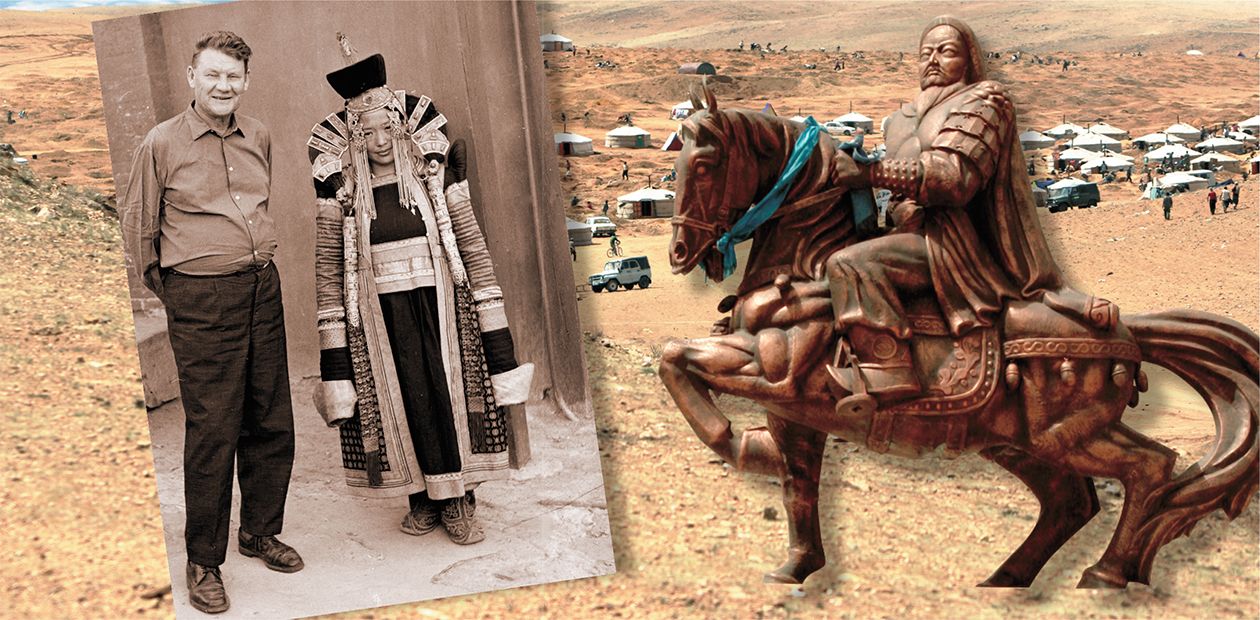Chinggis Khan in the Eye of the Third Millenium
Geneticists believe that every 200th person on the Earth can be a descendant of Chinggis Khan, who was famous not only for his victories but also for the extraordinary fertility. If the sight of the horse-tailed Mongolian banner streaming in the wind quickens up your heartbeat, you might have a grain of the immortal spirit of the Shaker of the Universe
This happened in spring 1206 at the all-Mongol kurultai — a congress of noyons who arrived from all parts of Mongolia held at the source of the river Onon. A white holy banner with nine horse-tails — abode of the spirit Sülde, the patron of Mongol warriors — was planted, and Temüjin became Chinggis Khan. There is no exact translation of this title into other languages: the Tuvinian scholar Lobsan Kenin holds that this ancient word means “the khan above other khans”, “the khan of khans”.
Having united Mongolia, the Great Khan did not yet become the Chinggis Khan known to the world history — the figure recognized as one of the most prominent people of the second millennium. He became Chinggis Khan when he led his forces across the borders of Mongolia, and Chinese and Moslem historians described his victories soaked in blood. Chinggis Khan believed he was the chosen one; and as the number of his conquests grew, he must have believed that Heaven had chosen him to put on the right road the peoples that had gone astray.
Except for his childhood and youth, a third of Temüjin’s life was spent in fighting for power in Mongolia and a third in conquering other countries, and it was this last third of his life that made him world-famous. The memory of Temüjin, creator of the Mongol state which laid down foundation for the formation of the Mongol nation, has been justifiably held sacred in his motherland. For the Chinese of the last decades, he is the founder of the dynasty that united the peoples of modern China into a family. For the rest of the world, Chinggis Khan is a conqueror who led ruthless wars of extermination. Even though this was the spirit of the epoch, contemporaries thought that the bloodshed was often excessive.
Chinggis Khan must have been a talented person, fairly cautious and fairly brave. Even though he headed his armies and sometimes even participated in the battles personally, he was mainly distinguished by his ability to choose talented military leaders. He set great store by loyalty and hated betrayal. Chinggis Khan was moderate in his drinking and eating habits and condemned drunkenness, which in those days was very wide-spread in Mongolia. Chinggis Khan was an excellent administrator, who believed that only a man who can manage his own family, could manage a dozen of families; and a man who can manage a dozen, could manage a hundred.
Historic figures of such a scale can hardly be judged equally, and their evaluation often depends on a specific political situation. This is true of Chinggis Khan, a symbol personality of the past millennium, a bloodthirsty conqueror and distinguished statesman combined.










